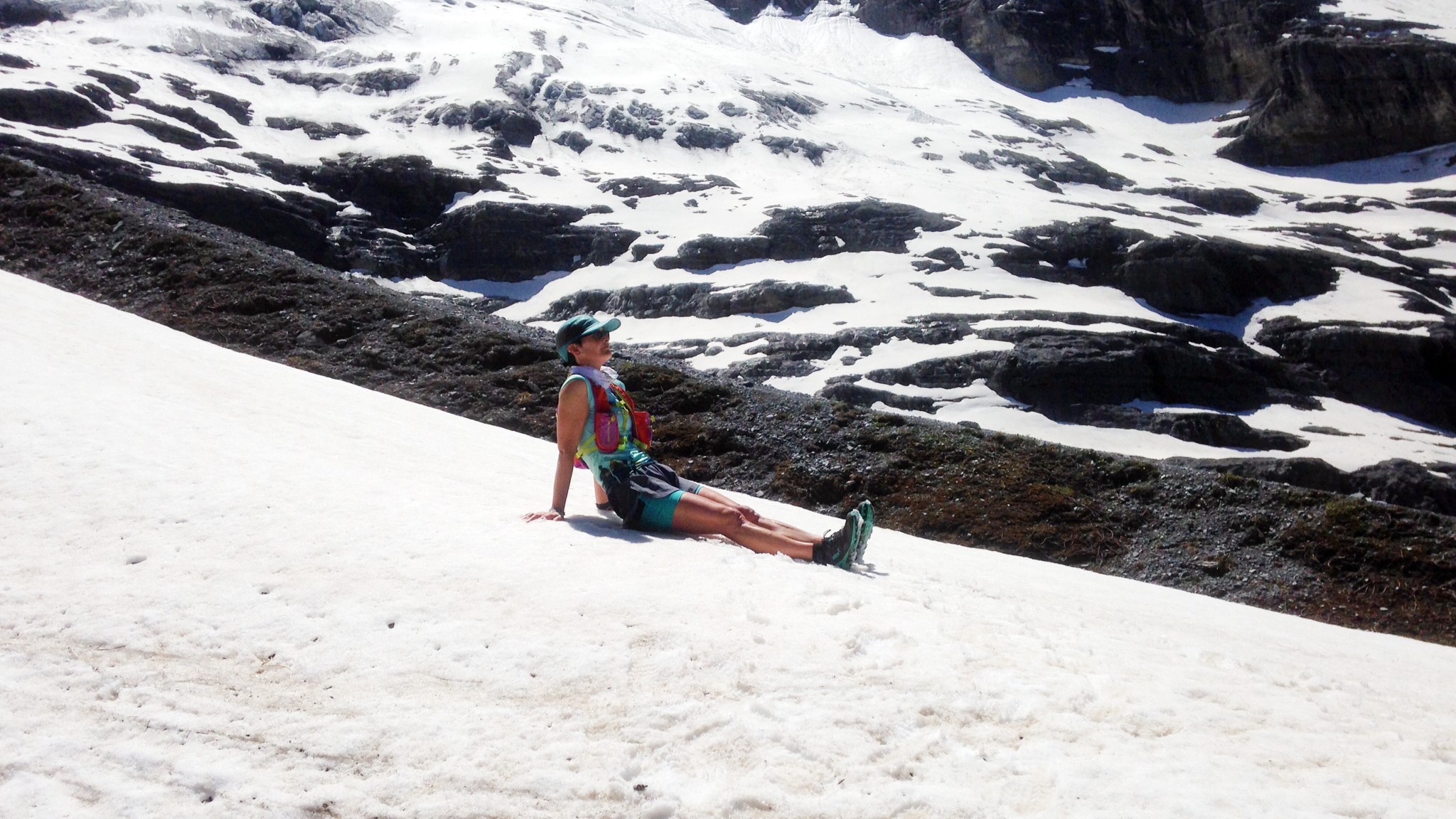An hour and a half late, Scottish ultrarunner Joasia Zakrzewski still won the 100k Race to the King ultramarathon four years ago. Yet, the woman who remembers the race best isn’t Zakrzewski. It’s Helen Jones, the woman who finished two hours behind her.
Helen Jones remembers the 2016 Race to the King ultramarathon like she won it. Only she didn’t. At least, not technically.
The 51-year-old Swansea local made the trek to Gaston Farm to run the 53.5 miles through the rolling chalk hills of the South Down Ways alone. Her husband (now ex-) declined the invitation to join, marking the third time Jones felt a twinge in her 25-year marriage. But here Jones was, standing on the start line, her dark pixie-cut damp in the mist as her hazel eyes scanned the mostly male crowd. It was as she expected, only there was a problem with traffic. A bus was late.
“There was a woman on the bus, a Scottish runner. Basically, she started an hour and a half after everyone, and well…she won. She went and she beat everybody!” Jones’ laughter echoes through the phone four years later. After a few moments, she catches her breath and sighs. “You just have to look at these women and you have to think…wow.”
In 2016 elite Scottish ultrarunner and two-time Comrades winner Joasia Zakrzewski sat huddled in a portaloo 20-odd miles from the start line. Rain and thunder pounded her interim plastic refuge. She was phone-less, cake-less, cold, alone, and an hour and a half late to where she needed to be — thinking anything but wow.
“I thought I might just stay inside this port-a-loo and not come out again,” Zakrzewski says with a wry smile as she remembers the race meant to prove to Team GB her capability of enduring back-to-back schleps with very little recovery in between. While the late bus signalled a less than promising start, Zakrzewski pried herself from her reprieve, found life in a coma-inducing malt loaf at the next aid station and, ever-faithful in character, snagged a finishing time 30 minutes shorter than the leading man to claim first place at under eight hours. It was more than two hours earlier than Jones’ time, who crossed the same line just under 10 hours and 11 minutes, placing tenth amongst the women.
“I’m not a professional,” Jones says, as if a caveat to everything to come next. “I find running has kept me sane through a lot of rubbish in my life.”
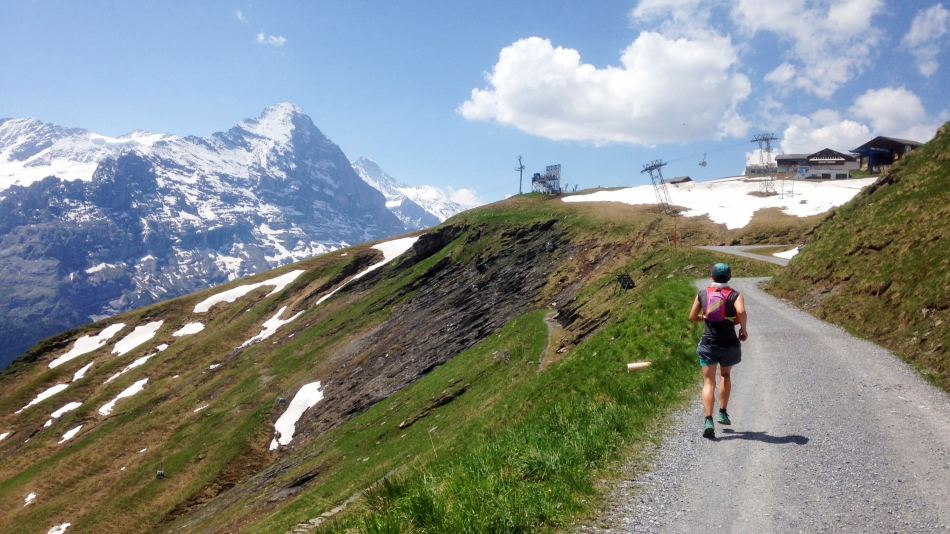
Jones and Zakrzewski arguably inhabit two opposite ends of the ultrarunning spectrum. Zakrzewski is a well-decorated member of Team GB, a Comrades legend, and the first woman to ever outright win Race to the King. Jones is the caretaker of the Mumbles Methodist Church who has never breached the top 10, let alone outright won a race.
But what is otherwise tickled nostalgia for Zakrzewski — her prize was the previous year’s Race to the Stones trophy and her sister at the finish line for a trip for pizza — was a milestone for Jones’ future. No fans caught her at the finish and her marriage hung on frayed shoestrings. Yet, Race to the King was for Jones the first time she had accomplished anything like this on her own. It was a proof and most glaringly, a life win.
“I ran it really well,” Jones says through an undeniable smile. “I think I ran it better than I would’ve if he had been with me.”
When your life sort of crumbles and you don’t think you’re ever going to be the same again…women have got to see there’s so much strength in a woman, isn’t there?”
Helen Jones
Ultrarunning has a funny knack for finding those whose lives feel stuck at perennial dead-ends, exposing a glimpse into a new world and then hurtling those lives into what seemed before to be ludicrous impossibilities. Call it ripples in the ocean or butterfly wings. For more than 140,000 other women around the world, watching one woman succeed becomes an impetus to follow suit. Jones is a mere microcosm of this.
“I think that with every athlete coming into ultrarunning, you don’t necessarily know why they’re doing their ultramarathon, why they’re training for it, why they get out to do the long runs that they do. It’s more the story that drives them,” says ultrarunning coach and sports physiologist Lucy Sacarello.
According to Sacarello, when running 50-plus miles, times and podiums become relative. Instead, troubles became tameable, pasts become inverted. Merely running the race produces a power in itself.
“You’re winning if you’re staying out in the trail longer because it’s such a beautiful part of the world. It’s not a competition in the way people think.”
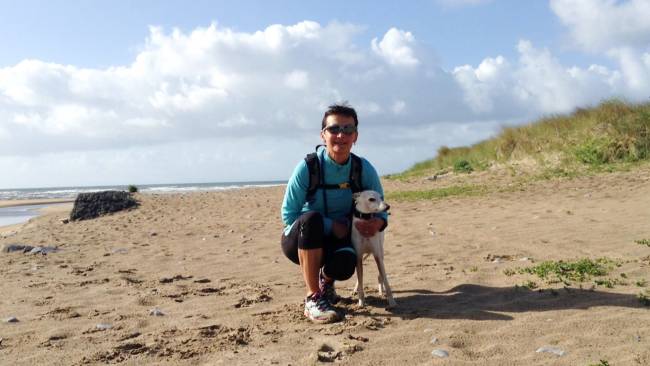
Jones’ story reads like many others. Married in her early 20s, she lived a “rather lazy” life for the subsequent decade: drinking, smoking, eating poorly. Deciding to replace one vice with another, Jones adopted three whippets in 2001, who she now gives credit for saving her life. But at the time, her philosophy was less cathartic: “When they’re howling at six in the morning, you can’t do it with a hangover, can you?”
Jones and her whippets began walking. Walking turned into running. Running turned into 5Ks then half-marathons and inevitably the full 26.2 miles. Fourteen years and 20 marathons later, Jones and her then-husband ran their first ultramarathon together. Jungfrau Ultra and a handful more followed. Two years later shortly after Race to the King, Jones’ 25-year marriage came to an end. Two of her three whippets passed. Jones found herself adrift at her ostensibly dead end.
“It’s a long time to be with someone. And when they turn around and say to you they don’t want to be with you anymore, it’s a shock, you know? I lost two of my dogs, my husband decided he didn’t want to…”
She pauses. What seems like will be an inevitable sigh turns into a gentle and content chuckle.
“I swear if it wasn’t for my running, and I know this is quite an enormous statement to make, I don’t think I’d be here. I don’t know what I’d have done.”
It’s being in that one particular moment, in that one particular footstep you’re about to take because if you start dwelling on how far you’ve been or how far you’ve got to go, you’ll mess your head up.”
Helen Jones
Falling into a malaise was tempting. Everything Jones had done she had done with another. Instead, Jones woke up every morning to run her only living whippet Ripley. The pair meandered along the beach or around town, Ripley happily harnessed beside Jones for upwards of eight miles.
Sometimes, they ventured to Colley Woods’ lookout point where Jones scattered the ashes of her two other whippets. No car afforded Jones infinite time on her feet. She ran in the morning, ran to work, ran home, took Ripley out, ran back to work, ran back home and (predictably) enjoyed another run. If she has a trip to the shop or visit to her parents’?
“I just go run there,” she says with a laugh. “It’s the way I live. If you look at my CV it reads back to front. I work so I can live as I want to live, so I’ve got the freedom to run.”
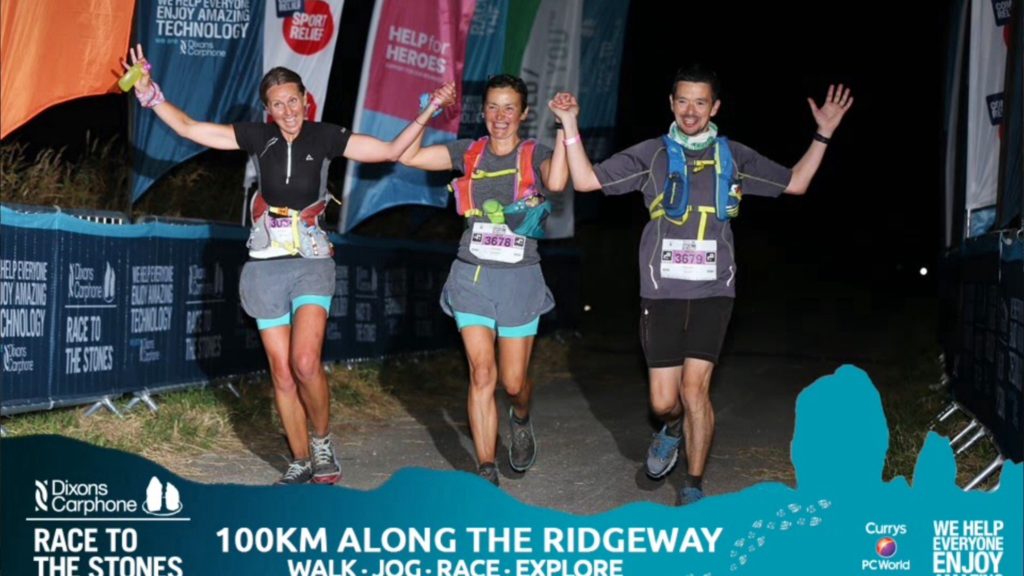
With no cap on distance, Jones began a new lease of life. She found herself snaking the Wales Coastal Path, topping Snowdown. She lounged on the Swiss Alps’ snowy cliffsides, looped Interlaken and trekked the ancient Wiltshire ridgeway. The distance became addicting. How far could she go before she couldn’t? She ran faster, harder, solo or with new-found friends, but most importantly, for herself.
“Running helps me think things through. It’s made me feel like a stronger, more confident person. It goes back to Race to the King,” she says. “For about 10 miles I didn’t see anybody. At one point I didn’t even know if I was going the right way – but I think, it’s seeing that as a sense of adventure, being out in the wild, and sometimes when there’s nobody else about, it’s even better.”
The last three years came with trials. From near-broken kneecaps flying off Pen y Van, capsizing down a pass in the Snowdon marathon after offering a man salt tablets (“I still finished third in my age group!”) or taking an elbow to the neck from a male racer. And while she won’t tell you exactly what she said to him (“it was not polite”), she’s not the sort of woman who will back down anymore. There’s a particular strength, she says, that comes from attempting any of these herculean slogs and finding oneself herculean enough to conquer them. The falls and elbows merely add to her plucky panache.
“The whole thing about ultras is not to think about how far you’ve run or how far you’ve got to run. It’s being in that one particular moment, in that one particular footstep you’re about to take because if you start dwelling on how far you’ve been or how far you’ve got to go, you’ll mess your head up.”
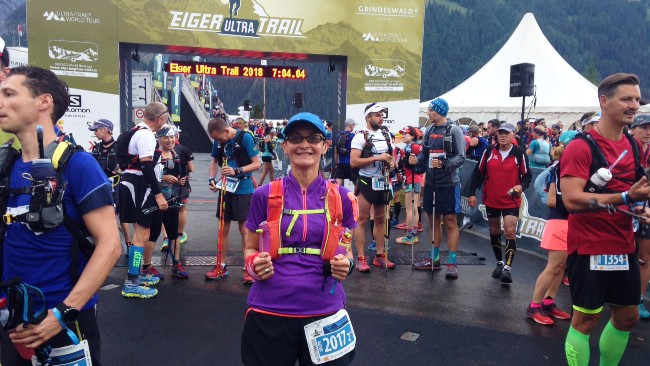
It’s partly a testament to the trails: what happens on them inevitably translates off. Each race is, as Zakrzrewski attests, as predictable and personal as life itself:
“In ultras, it is so much that you can’t affect somebody else’s race, but you can lose your own by trying to race somebody else’s,” Zakrzewski says. “You’ve got to just do what you can do and ignore everybody else. You can’t control it, but that’s the beauty of it.”
When I look at myself and the stuff that I do, the training, running and everything I’ve got planned, I think I never would even in my mid-20s have thought I would do anything like this. It’s almost like I’m a completely different person”
Helen Jones
For many like Jones, a greater testament arises from visibly watching the successes of women like Zakrzewski in ultrarunning’s upper echelons. The Race to the King was one of those rare moments (becoming less so) where a woman triumphed. Jones’ story, like so many others, won’t end in lifting a trophy far above her head, but Zakrzewski’s success digs far deeper than silverware.
“I think women should look at other women and think right, I can do this,” Jones says. “When your life sort of crumbles and you don’t think you’re ever going to be the same again…Women have got to see there’s so much strength in a woman, isn’t there?”
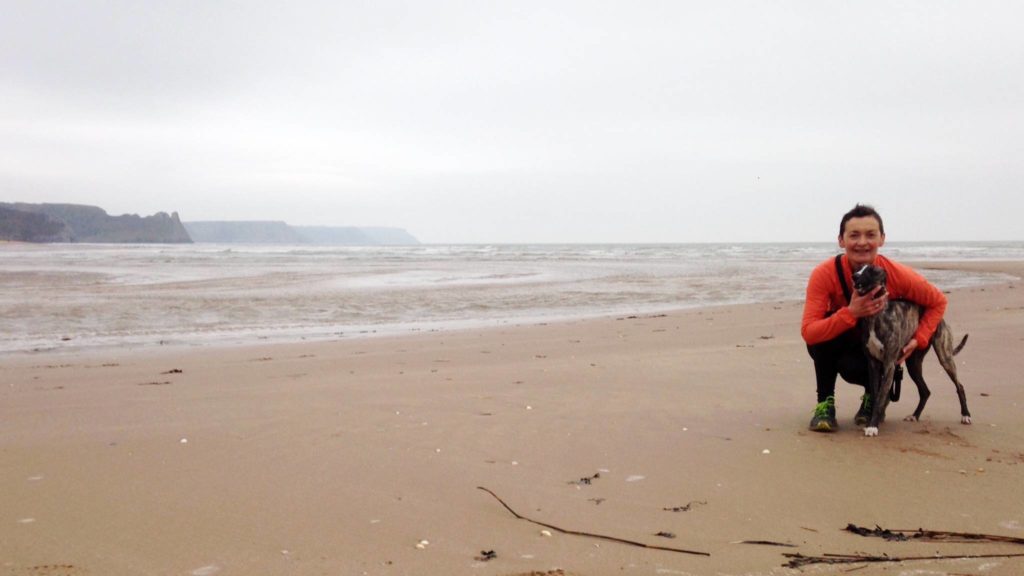
Closing on her third solo year, this year in particular was meant to be Jones’. Amongst her litany of scheduled races, Jones planned her seventh London Marathon, the Cottrell’s Way, the Eiger Ultra Trail, Snowdonia Marathon and the Jungfrau Ultra, this time entirely on her own.
Of course, her plans like many others have been provisionally freezer stored. And while for some time the hiatus felt nearly boding, Jones remembers where she started.
“When I look at myself and the stuff that I do, the training, running and everything I’ve got planned, I think I never would even in my mid-20s have thought I would do anything like this. It’s almost like I’m a completely different person,” Jones says. So while this year was meant to be a year she did her, it merely means maybe next year she’ll check off the 100-miler. Meanwhile, she’s quite happy where she is.
“I just hope I can keep on running.” She takes a deep, thoughtful breath, then lets a small chuckle escape. “As long as my knees hold out.”
